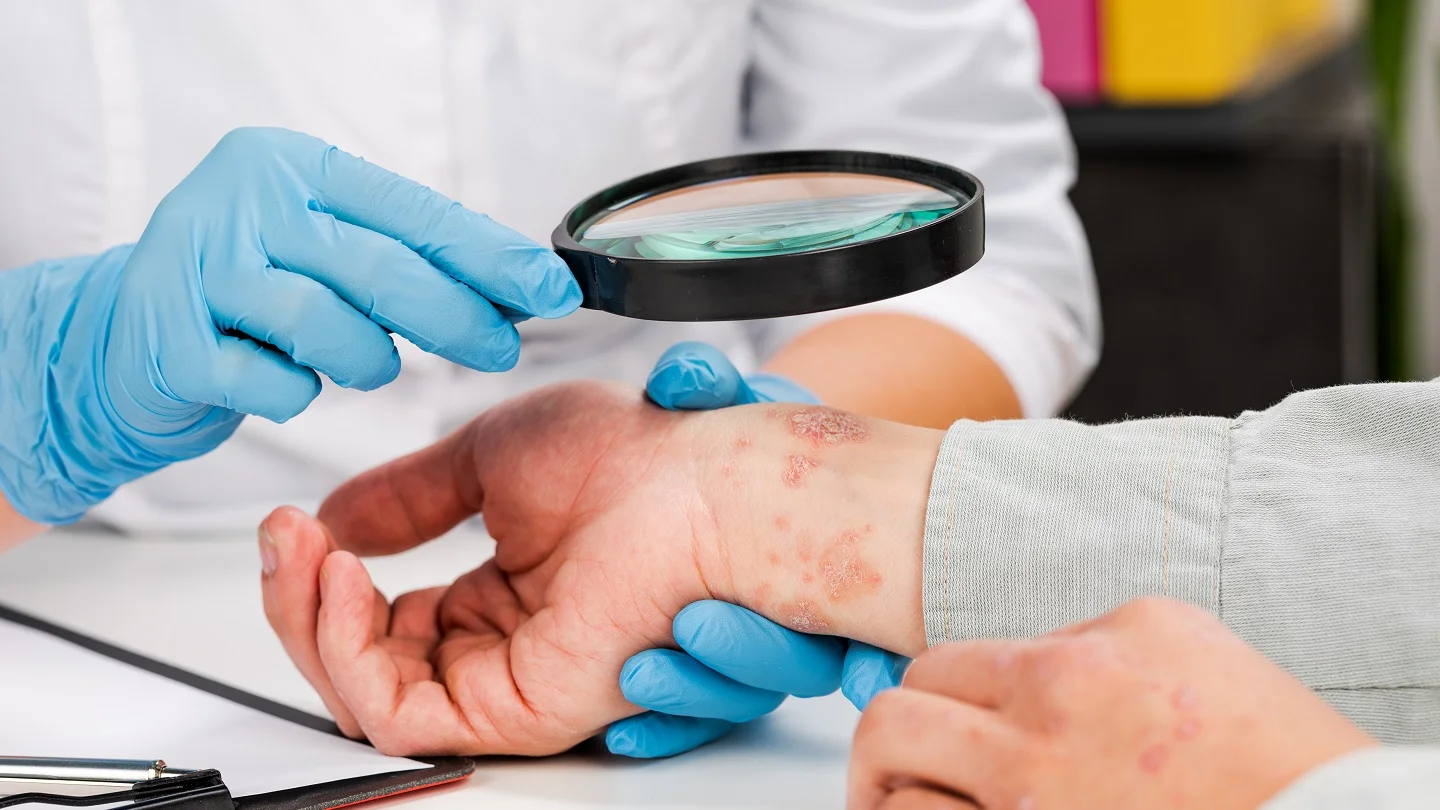
InnoCare Doses First Patient in Phase III Trial of ICP-488 for Psoriasis in China
InnoCare Pharma, a leading biopharmaceutical company dedicated to developing innovative treatments for cancer and autoimmune diseases, has announced a significant milestone in its clinical development efforts. The company has successfully dosed the first patient in its Phase III registrational trial for ICP-488, a novel TYK2 (Tyrosine Kinase 2) inhibitor, intended for the treatment of moderate-to-severe plaque psoriasis in China. This development marks a major step forward in addressing the pressing need for effective oral therapies for psoriasis, a chronic inflammatory skin condition affecting millions of patients worldwide.
The Phase III trial is a multicenter, randomized, double-blinded, placebo-controlled study designed to rigorously evaluate the efficacy and safety of ICP-488 as a monotherapy in adult patients suffering from moderate-to-severe plaque psoriasis. This late-stage clinical study builds upon promising results from earlier trials, positioning ICP-488 as a potential game-changer in the treatment landscape for psoriasis.
Mechanism of Action and Clinical Significance
ICP-488 is an oral, potent, and selective TYK2 allosteric inhibitor. TYK2 plays a crucial role in the signal transduction of several inflammatory cytokines, including IL-23, IL-12, and type 1 IFN, which are central to the pathogenesis of psoriasis and other autoimmune disorders. By binding specifically to the JH2 regulatory domain of TYK2, ICP-488 effectively blocks these signaling pathways, thereby mitigating the inflammatory processes that drive psoriasis.
The inhibition of TYK2 represents a promising therapeutic strategy, as it allows for the targeted suppression of inflammatory responses without broadly affecting the immune system. This selectivity is a crucial factor in minimizing off-target effects and enhancing the drug’s safety profile. The development of TYK2 inhibitors, such as ICP-488, has garnered significant interest in the scientific community due to their potential to provide superior efficacy and safety compared to traditional systemic treatments for psoriasis.
Promising Clinical Data from Phase II Trial
The efficacy and safety of ICP-488 were previously demonstrated in a Phase II clinical trial, the results of which were presented at the Late-breaking Research session of the 2025 American Academy of Dermatology (AAD) Annual Meeting. The study evaluated ICP-488 at two different dose levels—6 mg QD and 9 mg QD—and showed a substantial reduction in psoriasis severity among treated patients. Notably, the trial results highlighted:
- Significant Improvement in Skin Lesions: Patients receiving ICP-488 experienced marked reductions in Psoriasis Area and Severity Index (PASI) scores, with many achieving PASI 75 and PASI 90 responses, indicating at least a 75% and 90% improvement in disease severity, respectively.
- Rapid Onset of Action: Clinical benefits were observed early in the treatment course, with patients reporting improvements within weeks of starting therapy.
- Favorable Safety Profile: ICP-488 was well-tolerated, with no unexpected safety concerns. The adverse events reported were predominantly mild to moderate in severity, reinforcing its potential as a safer alternative to existing treatments.
The positive outcomes from the Phase II trial laid the foundation for the current Phase III registrational study, which aims to further confirm the clinical benefits of ICP-488 in a larger patient population.

Addressing an Unmet Medical Need
Psoriasis is a chronic, immune-mediated disorder that affects approximately 8.66 million people in China alone, and its prevalence is steadily increasing. The disease is characterized by the development of red, scaly patches on the skin, which can cause significant physical discomfort and emotional distress. Despite advancements in treatment, many psoriasis patients continue to struggle with inadequate disease control, medication side effects, or the inconvenience of injectable biologics.
While biologic therapies targeting IL-17, IL-23, and TNF-alpha have revolutionized psoriasis management, their high cost, need for regular injections, and potential immunosuppressive effects limit their widespread use. Many patients prefer oral treatments, but current small-molecule drugs have limitations in terms of efficacy, safety, or tolerability.
ICP-488 represents a promising new oral therapy that could address these gaps by providing high efficacy while maintaining an excellent safety profile. If approved, it could become a highly attractive option for patients seeking an effective and convenient alternative to existing treatments.
Executive Insights and Future Prospects
Dr. Jasmine Cui, the co-founder, chairwoman, and CEO of InnoCare, emphasized the company’s commitment to addressing the unmet needs of psoriasis patients. She stated, “Psoriasis severely affects patients’ quality of life and requires safer, more effective oral medications. We are pleased that ICP-488 has received recognition at international academic conferences for its promising clinical data, and we will accelerate the Phase III clinical program. In addition to psoriasis, InnoCare is rapidly advancing several Phase III registration trials in the field of autoimmune diseases. We look forward to bringing our innovative therapies to more patients around the world.”
InnoCare has been actively expanding its research portfolio in autoimmune diseases beyond psoriasis. The company is conducting multiple late-stage trials for other immune-mediated disorders, demonstrating its commitment to advancing targeted therapies for conditions with high unmet medical needs.
Market and Regulatory Considerations
The global psoriasis treatment market is projected to continue its expansion, driven by increased disease awareness, rising prevalence, and the introduction of novel therapeutics. Oral TYK2 inhibitors have emerged as a highly promising drug class, with several candidates under development by leading pharmaceutical companies. InnoCare’s ICP-488 is among the frontrunners in this category, particularly in China, where the demand for innovative and accessible psoriasis treatments is substantial.
Regulatory agencies such as China’s National Medical Products Administration (NMPA) will closely evaluate the Phase III trial data to determine the drug’s approval status. If ICP-488 demonstrates superior efficacy and safety, it could secure a significant market share and offer a new standard of care for psoriasis patients in China and potentially in global markets.





